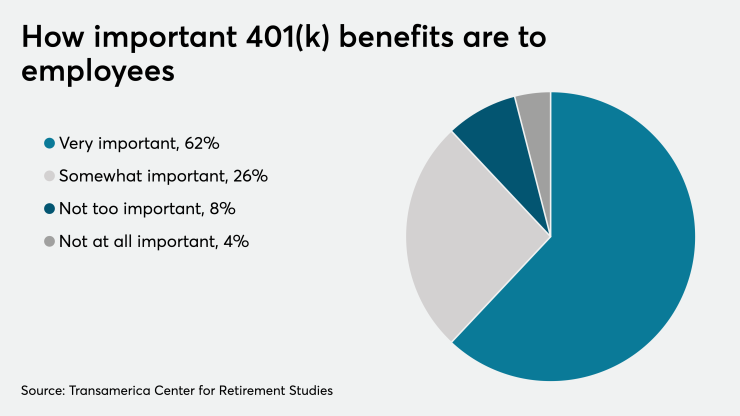As the unemployment rate has soared to a recent record 14.7%, the highest since the Depression era, the coronavirus crisis may result in one alarming trend: forcing thousands of Americans into early retirement.
The coronavirus is impacting labor markets in three ways. First, there have been significantly larger than anticipated job losses. Second, many laid off workers are not actively looking to find new jobs. Third, participation in the labor force has declined by seven percentage points, a fall that overshadows the three percentage point cumulative decline that occurred from 2008 to 2016, according to data from the Becker Friedman Institute for Economics at the University of Chicago.
The data shows that there has been a large increase in those who claim to be retired, with the figure rising to 60% from 53%, making early retirement a key driver in the decline in the labor-force participation.
“These people who have been planning to work another five or 10 years are seeing early retirement situations,” says Bobby Glotfelty, a senior licensed financial professional at investment company Betterment. “Now they're in a new situation where they have to look at all their different expenses going forward and see what different investment accounts they have and see what best they can do to position themselves, to see if they are able to get through an early retirement.”
In a recent interview Glotfelty shared his thoughts on how coronavirus is forcing more early retirements — and how employers can help better prepare employees.
What financial impact can early retirement have on an employee?
When people are forced into early retirement, they want to look at their current situation from an expense perspective. With individuals looking at their expenses now that they're not working, they may actually be saving a lot of money. The biggest costs in retirement would be housing, transportation, healthcare and food expenses. If you take it a step further, now that a lot of individuals don't need to commute to work, not only are they saving time but they're saving potential expenses like car maintenance, gas, parking, and mass transit costs.
They also don't need to spend money on work clothes, and they may have reduced miscellaneous expenses. These are some of the things that they sort of want to sit down and figure out. They may be considering moving to different cities or states, and this can have a huge impact on the cost of living going forward. That's probably one of the biggest factors when people are in early retirement.
How can employees be better prepared for retirement, no matter when it comes?
The next step employees will want to take is look at their overall financial situation, and the different account types they have on an individual level. They may have employer plans like 401(k)s and 403(b)s, but they may also have their own individual retirement accounts, like traditional and Roth IRAs. However, they may also have other regular taxable accounts like a savings account.
Individuals should look at their overall financial situation and determine all their different financial accounts. Then from there, you want to make sure it's optimized for taxes and risk.
What are the biggest lessons about retirement the COVID-19 crisis has taught employers?
It's really important for employers to be very transparent on the options they offer individuals when it comes to different retirement accounts. Often I will work with employees who just don't know the different options they have when it comes to what they can do with a 401(k) after they leave an employer, and what the tax consequences are for doing so.
Also, if they are still employed, learning more about the different options in terms of loans and hardship withdrawals is key. There just needs to be a lot of transparency around what individual options are with their employer plans.
What is the biggest financial mistake employees make during times of crisis?
Taking withdrawals out of their retirement accounts too soon. This is specific also to early retirees. A lot of times you want to avoid taking money out of a 401(k) or an IRA before age 59 and a half because generally we'll have that 10% penalty from the IRS and also maybe a taxable event. Individuals will want to try and bridge the gap with other savings or short-term investments that they have. That could be either a high yield savings account or another individual taxable account. Taking money out of your 401(k) or an IRA too soon is generally a last resort.






